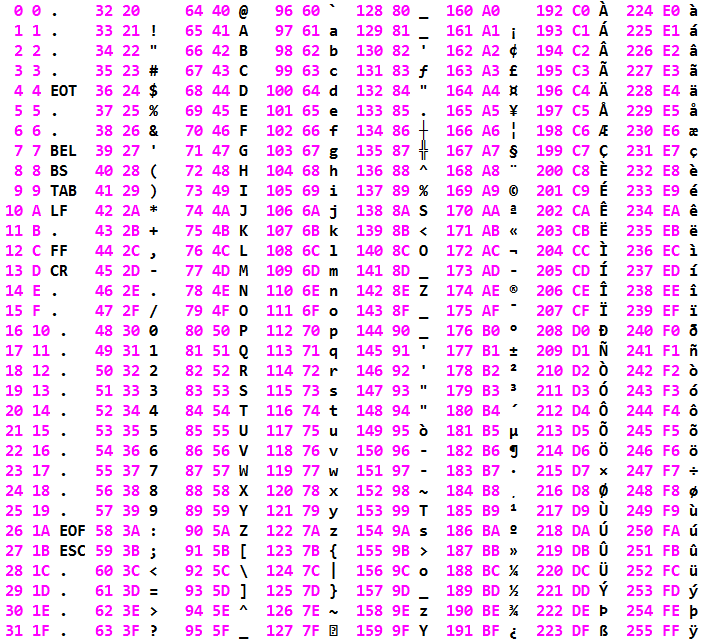ASCII and ISO 8859-1 character set quick overview,
as created with the sfk ascii command from the swiss file knife tool.
Character set: ASCII from 0 to 126, codes above are system specific,
but most of them should display as ISO 8859-1 characters.
Unprintable characters were replaced by a dot ".".
The code of the actual dot "." is decimal 46, hexadecimal 0x2E.
 To create such a table on the command line just download
the swiss file knife, and run the command:
sfk ascii
Under windows, this will display DOS specific characters 128 to 255
directly in the command line window.
To see windows specific characters instead, redirect the output
into a file:
sfk ascii >tmp.txt
then load this file in a windows text editor, e.g. notepad.
To create such a table on the command line just download
the swiss file knife, and run the command:
sfk ascii
Under windows, this will display DOS specific characters 128 to 255
directly in the command line window.
To see windows specific characters instead, redirect the output
into a file:
sfk ascii >tmp.txt
then load this file in a windows text editor, e.g. notepad.
| 
